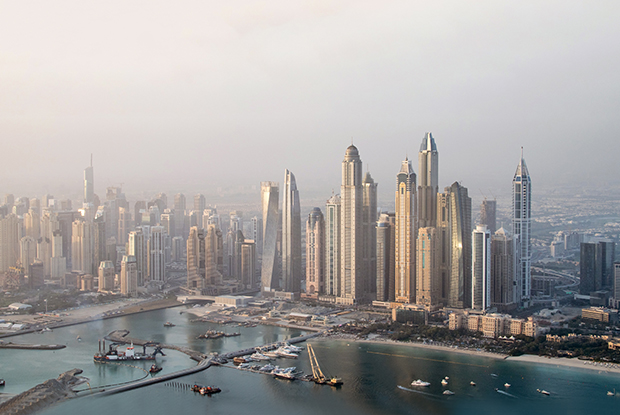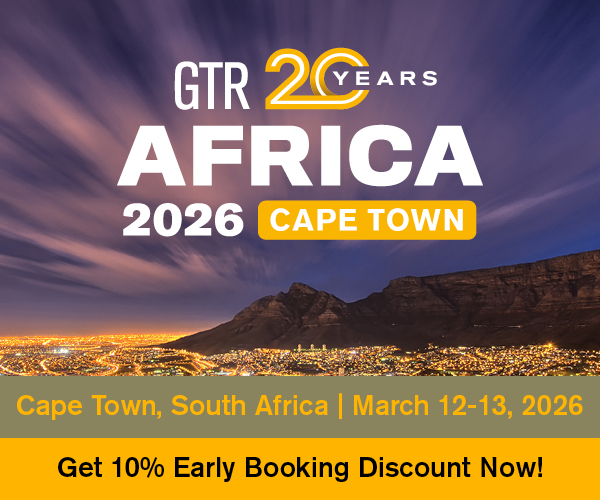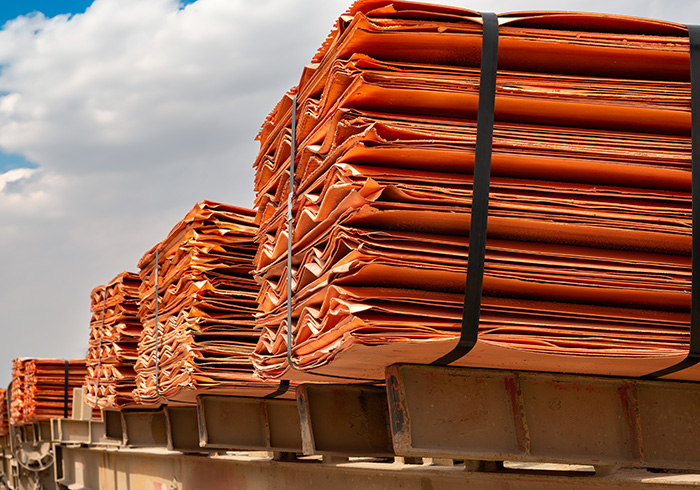Will Expo 2020 drive long-term growth in the UAE or remain a short-lived euphoria? Sanne Wass investigates.
It’s been a sluggish past few years for the UAE economy, let alone the GCC as a whole, since the 2014 oil price slump hit the region hard. But hopes of an economic boost are blooming as Dubai prepares to host what is set to be the largest event ever staged in the Arab world: Expo 2020.
Taking place every five years, these world trade fairs give nations and companies from across the globe the opportunity to showcase their ideas, inventions and achievements.
Dubai is going big this time around. Themed “connecting minds, creating the future”, Expo 2020 is expected to attract no less than 25 million visitors from 192 countries between October 2020 and April 2021.
“Expo 2020 is seen as the change, the turning point for all the negative news that we’ve seen over the past few years. Everybody is expecting that things are going to get better, during and after Expo 2020,” says Imad Karam, managing partner at KCCG Consulting, a Dubai-based company helping SMEs and entrepreneurs to build business plans, launch and grow. “I see Expo 2020 mentioned in most business plans. It’s a big opportunity for any upcoming business that wants to establish in this country.”
This optimism is not unfounded. In April, EY released a report on the economic impact of Expo 2020, finding that from 2013 (when Dubai won the bid to host the event) to 2031, the event and its legacy are likely to contribute AED122.6bn gross value added (GVA) to the UAE’s economy, supporting 49,7000 full time jobs a year in the country. During the event itself, the impact is expected to be equivalent to no less than 1.5% of the country’s GDP, the report says.
“The event lasts for six months or so, but there’s a great opportunity for the whole economy both before and after,” said Reda Ezzat, head of trade and structured finance at Mashreq Bank, speaking on a panel at GTR Mena 2019 in February. “If you look at what is before the event – the infrastructure, the airport and metro construction – and the stimulation of the economy that Expo 2020 will bring after the event, companies, banks and the whole economy will be stimulated, all the way through the value chain.”
With less than a year and a half until Expo 2020 officially kicks off, it is now one of the key drivers of development in Dubai. According to EY, AED40.1bn is expected to be invested in infrastructure for the event, most of it in the pre-expo phase.
This includes construction activities at the Expo 2020 site itself – a 4.38km2 area in Dubai South – by Expo 2020 organisers and other infrastructure providers, as well as national showcase pavilions being built by the hundreds of countries participating in the expo.
Added to this comes a range of off-site activities that have been brought forward as a result of Expo 2020, with most relating to infrastructure investments by the Roads and Transport Authority, Dubai Electricity and Water Authority, Etisalat and Dubai Municipality.
The US$2.8bn Route 2020 is one pre-expo mega-project, involving the construction of a 15km, seven-station extension of Dubai’s red metro line to the Expo 2020 site, which is currently underway.
These activities are already creating more business for the trade finance departments of the UAE’s banks.
“Various countries are building pavilions now and a lot of companies from Europe and the US have been contracted, and we are issuing guarantees for them. So are other banks,” says Sumit Aggarwal, head of transactional banking at Emirates NBD, the official banking partner of Expo 2020. “We are now beginning to see some requests from some countries to open accounts in Dubai. So yes, there is business, but it’s still early days.”
Birju Sanghrajka, head of trade for Africa and the Middle East at Standard Chartered, says the bank’s trade department has already been “quite active” in two areas. “One is bid bonds, performance bonds and guarantees,” he says. “The other is on monetisation of the receivables. That’s really becoming interesting now for us. As some of these projects are getting past the 60-70% completion stage, contractors are coming to us asking to help them and we are executing on a number of transactions.”
Focus on SMEs
One segment labelled as the big winners of Expo 2020 is small businesses, with organisers committing to awarding 20% of the value of all contracts to SMEs.
The expo has taken a range of measures to live up to this ambition. In November 2018, it launched the Online Marketplace (OMP), a platform where companies from around the world can apply for business opportunities as part of the event.
It is designed to increase the reach and visibility of SMEs in particular, enabling them to advertise products and services, connect with their peers and access business opportunities from local and regional suppliers, Expo 2020 and its partners, as well as international participants.
So far, over 32,000 suppliers from 151 countries have registered on the platform, with about 80% of them being SMEs, according to Tina Ghanem, director of OMP.
“All tender opportunities related to Expo 2020 are now posted directly to the OMP, and approximately 60% of our contracts have been awarded to SMEs,” she says. “Our intention behind creating the OMP was to help drive the internationalisation of SMEs. Any SME, whether based in the UAE or abroad, can benefit from Expo 2020.”
Another benefit, she adds, is on payment terms: SMEs supplying to the expo will be paid within 35 to 40 days, an improvement from the usual 60 days. Additionally, Expo 2020 does not require bank guarantees from SMEs to conduct business. All they need is to provide a security cheque, Ghanem says.
According to local trade financiers that GTR spoke to, SMEs taking part in the Expo 2020 value chain are also better positioned to access trade finance.
“Those SMEs in the end of the supply chain have an opportunity now to receive finance against a purchase order – this is the kind of finance that they wouldn’t normally, if they are high risk, get without having been in that value chain. This is a proposition that we offer to the value chain in a project like Expo 2020,” says Mashreq Bank’s Ezzat.
His comment is echoed by Sanghrajka, who says Standard Chartered is now doing a lot more in the middle enterprise space, particularly on the contractors and sub-contractors supporting the larger Expo 2020 projects.
“One of the challenges that SMEs in the UAE deal with is generally the extended payment terms that they get from industry, government, etc. But with Expo 2020, given its strategic nature, we’ve seen the payment terms being pretty strict, and because there is more focus on this, we are a lot more comfortable supporting the SMEs, the MEs particularly,” he says.
No tangible impact, yet
Meanwhile, for those who work closely with SMEs in the region, the honest truth so far is that the benefits of Expo 2020 haven’t quite started to materialise for them yet.
“There’s a lot of expectation about Expo 2020, but it’s not really translating into a lot of SME activity on the ground at the moment,” says David Hunt, an independent consultant to small businesses in the Middle East and formerly the CEO of Gulf Finance, a UAE-based specialist SME financier.
He goes on to emphasise that, for SMEs, the UAE is still a difficult market. “The economy is very sluggish. Banks are still cautious, lending is not particularly increasing, and money is not flowing through the economy as much as many people would like. There’s a hangover from the SME crisis in 2015/16/17 when the oil price collapsed, that’s still very much in the forefront of bankers’ minds, and we see bank lending still fairly cautious on the SME sector,” he says.
But it may well just be a question of time: after all, as this publication goes to press in May 2019, Expo 2020 is still more than 16 months away. Sources speaking to GTR for this feature generally expect that activity will really start to accelerate in the last quarter of 2019.
“Unfortunately there’s nothing really tangible yet. To be honest, it’s all just hopes,” says Karam of KCCG Consulting. “The SMEs believe that the end of this year and hopefully the start of next year will be a pivotal time and things will really start to materialise.”
And then, of course, there is the event itself: according to EY, the GVA impact on the UAE for just the six months of Expo 2020 is estimated to be AED22.7bn. This growth will come mainly from the 25 million visitors forecast to visit and spend money in Dubai during the period, with around 39% of the impact likely to be felt in the hospitality sector.
However, the real question that seems to concern small businesses in the UAE is less around the immediate opportunities, and more about what will happen once the party is over.
“Although there are lots of hopes around the expo, some people are asking: ‘What about the period after Expo 2020?’ ‘Will this only be a temporary boost?’ ‘Will the economy benefit for the long term or is this only a short-lived euphoria that will leave many disappointed afterwards, when things settle down?’” says Karam.
Hunt agrees. “Certain sectors of the economy will do well out of Expo 2020 just because of the fact that you’ll have a lot more visitors, you’ll have people moving around the city and there is going to be spending. The challenge is, how long lasting are those benefits post the event? How much of those Expo 2020 investments will be sustainable and produce meaningful business as opposed to something that’s transient just because the event has happened? There is a question mark around that,” he says.
If you ask EY, there is good reason to be optimistic about the legacy of Expo 2020 – in fact, the consultancy predicts that the 10-year period after the event could contribute AED62.2bn GVA to the UAE economy.
One contributor to this legacy is the expo site itself, which is expected to be transformed into a large, mixed-used development, called District 2020. It will include a conference and exhibition centre, which is being developed by Dubai World Trade Centre, academic institutions, museums and galleries, commercial space and residential areas. More than 80% of the expo-built environment is planned to be retained for this.
Siemens and Accenture are already among the confirmed tenants, supporting the district’s focus on technology and innovation, with more companies expected to follow suit.
Others share the optimism. “Obviously it’s a bit of an unknown, but also, when Dubai does stuff, it does it well and it does it big,” says Sanghrajka, emphasising that the ecosystem created around District 2020 will continue to boost the economy and provide long-term opportunities for companies and banks.
“Since 2015 there have been challenges on the back of oil price slowdown in the region generally, and Dubai is not immune to that,” he says. “But the fact is, over the last 12 months, we’ve seen an improvement in the market sentiment, and improvement in the levels of non-performing loans. We’ve seen a lot more activity. Not at pre-2014 levels, but it’s getting back there. Obviously there is a downside risk to all of this, but it won’t be specific to Expo 2020, it will be specific to the Dubai economy and the wider regional economy.”
Putting Dubai on the map
One of the most important legacies expected to come out of Expo 2020 is that such an event pinpoints Dubai as a hub for business and trade.
“We are expecting to see growth in the economy, but it will be quite hard to estimate how much,” says Aggarwal at Emirates NBD. “It will definitely add to the attraction of Dubai as a trade location. We expect it to contribute to growth in Dubai’s internal and external trade. That’s exactly why we are doing it.”
According to Sanghrajka, the OMP is already a manifestation of just that: it’s attracting companies that have never done business in the UAE before.
“The OMP is quite an interesting concept,” he says. “It connects SMEs to potential suppliers and/or buyers, and not just for the projects themselves, but for the wider ecosystem. What’s quite unique is that we’ve seen a number of companies that generally haven’t done stuff in the UAE on the back of that come and speak to us and say, ‘we are thinking of setting up shop here, can you support us in various ways?’ That’s an interesting one. I think the OMP will continue to help.”
As a consultant to SMEs, Karam also advises his clients to plan for post-expo growth, not just in the UAE, but in the region as a whole. “My personal view is that Expo 2020 will indeed bring long-term benefits and there is no need to fear the post-expo era,” he says. “The Middle East in general is still not well known by foreigners. It is a region that is still not saturated: there are a lot of untapped opportunities, lots of gaps to be filled, lots of new business opportunities to be taken advantage. Expo 2020 will put the whole region on the map.”









